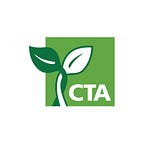Ripe partnerships: Harvesting the benefits of PPPs for the Eastern Africa fruit value chain
A public-private partnership (PPP), targeting fruit farmers in Kenya, has helped a multinational company secure quality mangos and passionfruit for processing into juice, whilst improving yields and incomes for farmers.
The Eastern African climate provides the ideal growing conditions for mangos and passion fruit, but farmers are often constrained by low yields and a disjointed value chain that results in poor farm gate prices. At the same time, multinational beverage company, Coca Cola, has struggled to source sufficient local fruits that meet international standards to fulfil the increasing demand for fruit juices from the region’s burgeoning middle class. To meet its requirements, the company had been importing expensive fruit puree, which meant higher prices for consumers.
To improve productivity in the mango and passion fruit value chain, a PPP involving TechnoServe, Coca Cola and the Bill & Melinda Gates Foundation was launched in 2010. By the end of the initiative in 2015, 54,000 Kenyan and Uganda farmers, nearly a third of them women, had been reached through extensive training and provision of farm inputs, and were connected to ready and stable markets. As a result, their incomes more than doubled. Two years since the project ended, more farmers have been recruited to supply a growing number of processors as Coca Cola continues to invest in its juice portfolio to address soaring demand.
“It was a comprehensive project that sought to correct every inconsistency in the entire value chain. We looked at how we could ensure farmers were able to produce a fruit that met international standards in optimum quantities, while incentivising them with the promise of a secure and ripe market,” says Isaiah Kirema, TechnoServe horticulture programme manager.
To give farmers improved bargaining power in price negotiations, farmers were organised into over 1,000 producer business groups, which also allowed improved access to credit from financial institutions. Technoserve’s role was to provide training to farmers on good agricultural practices, including pest and disease control, soil management and fruit harvesting. The agency also trained 70 community extension service providers who were key in training even more farmers. By 2015, farmers had cumulatively sold 132,000 t of fruit with incomes growing by an average of 142%.
Two local processors who were buying the fruits from over 8,000 farmers in coastal Kenya, processing it into puree and then selling the product to Coca Cola were supported by the beverage company to strengthen their capacity and, consequently, increase production, processing 10,000 t of fresh fruits per year. In total, 15 processors benefitted from the programme and were able to increase capacity to 30,000 t of fresh fruits annually. As a result, in 2012, when Coca Cola launched a new regional flagship juice, Minute Maid Mango, the puree could be exclusively sourced from Eastern African farmers and processors. In fact, the puree was such good quality that Coca Cola decided to use it to make juice in six other African countries including the Democratic Republic of Congo, South Africa and Zimbabwe.
As a result of the project’s achievements, the initiative was selected from more than 100 cross sectoral initiatives working on addressing global challenges to win the prestigious P3 Impact Award, which recognises effective PPPs that focus on improving the lives of communities around the world. “This project has offered very powerful insights into the power of collaboration and offered us key lessons into how partnering with the private sector can go a long way in creating long lasting initiatives. Private sector players, like Coca Cola, are in this for the long haul so they invest heavily in ensuring that the projects are sustainable. Whilst they might sometimes be more focused on the supply chain because that is their area, this is why players like TechnoServe are involved as ‘honest brokers’ ensuring that farmers equally benefit,” states Kirema.
Despite its success, the initiative was not without its challenges. Kirema explains that farmers were initially disappointed that Coca Cola would not be purchasing the fruits from them directly, and that they would need to continue selling through the processors. However, by building processors’ capacity and increasing demand for their puree, the project increased farm gate prices farmers were offered by 60%.
In addition, when the loan guarantee scheme was introduced in partnership with Equity Bank at the start of the programme to assist farmers with initial investments in passion fruit farming, many farmers unable to raise the capital were sceptical about accepting credit for fear of defaulting. Whilst this initially slowed the project’s progress, training on business planning, worked to address farmers’ concerns.
Inspired by the success of Project Nurture, Technoserve is now running a programme on reducing fruit losses, which account for up to 40% of farmers’ losses. Known as YieldWise, the project has so far trained over 4,000 farmers on post-harvest loss prevention techniques in Kenya alone.
Bob Koigi
